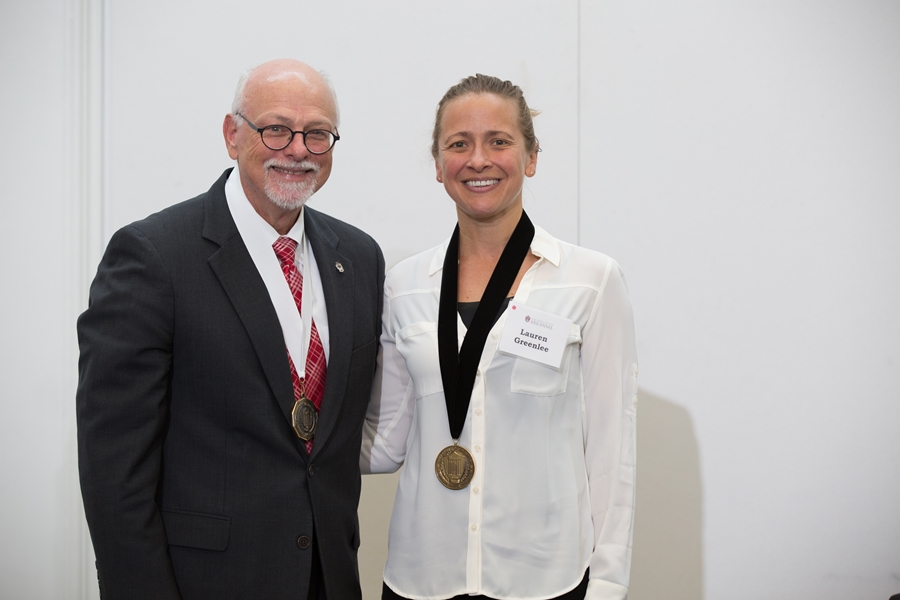FAYETTEVILLE, Ark. – The National Science Foundation’s Established Program to Stimulate Competitive Research, or EPSCoR, announced Wednesday that Lauren Greenlee, assistant professor of chemical engineering, will receive a fellowship award of $267,507 to continue her work characterizing metal-based catalysts to improve the next generation of fuel cells and batteries.
The award is part of EPSCoR’s new initiative to help researchers collaborate with premier research centers to enhance their ability to develop their research and technology. Greenlee and a graduate student will work with scientists at the University of Nevada, Las Vegas, a premier site for soft X-ray spectroscopy.
Greenlee will use this technique for determining the electronic structure of materials to characterize a suite of thin film and nanoparticle catalysts made of iron and nickel. Chemists and engineers have high hopes for these metals as a cheaper and more abundant alternative to precious metals, such as platinum, that are used in the production of fuel cells and batteries.
These energy conversion technologies are based on electrochemistry, a process by which a metal-based catalyst produces a desired reaction. Greenlee has extensive experience with electrocatalysts and electrochemical applications for industry, including alternative methods for producing ammonia and commercial fertilizer.
The EPSCoR Research Infrastructure Improvement Track-4 fellowship awards total approximately $5.6 million and go to researchers in 20 U.S. states.
EPSCoR funds are available to researchers in jurisdictions that have historically received lesser amounts of NSF research and development funding. These jurisdictions include 28 states, the Commonwealth of Puerto Rico, and the U.S. Virgin Islands. Arkansas and Nevada are EPSCoR states. Through the EPSCoR program, the NSF establishes partnerships with government, higher education and industry to make sustainable improvements in a jurisdiction's research infrastructure, research and development capacity and national competitiveness.
About the University of Arkansas: The University of Arkansas provides an internationally competitive education for undergraduate and graduate students in more than 200 academic programs. The university contributes new knowledge, economic development, basic and applied research, and creative activity while also providing service to academic and professional disciplines. The Carnegie Foundation classifies the University of Arkansas among only 2 percent of universities in America that have the highest level of research activity. U.S. News & World Report ranks the University of Arkansas among its top American public research universities. Founded in 1871, the University of Arkansas comprises 10 colleges and schools and maintains a low student-to-faculty ratio that promotes personal attention and close mentoring.
Contacts
Lauren Greenlee, assistant professor of chemical engineering
College of Engineering
479-575-5976,
Matt McGowan, science and research communications officer
University Relations
479-575-4246,
